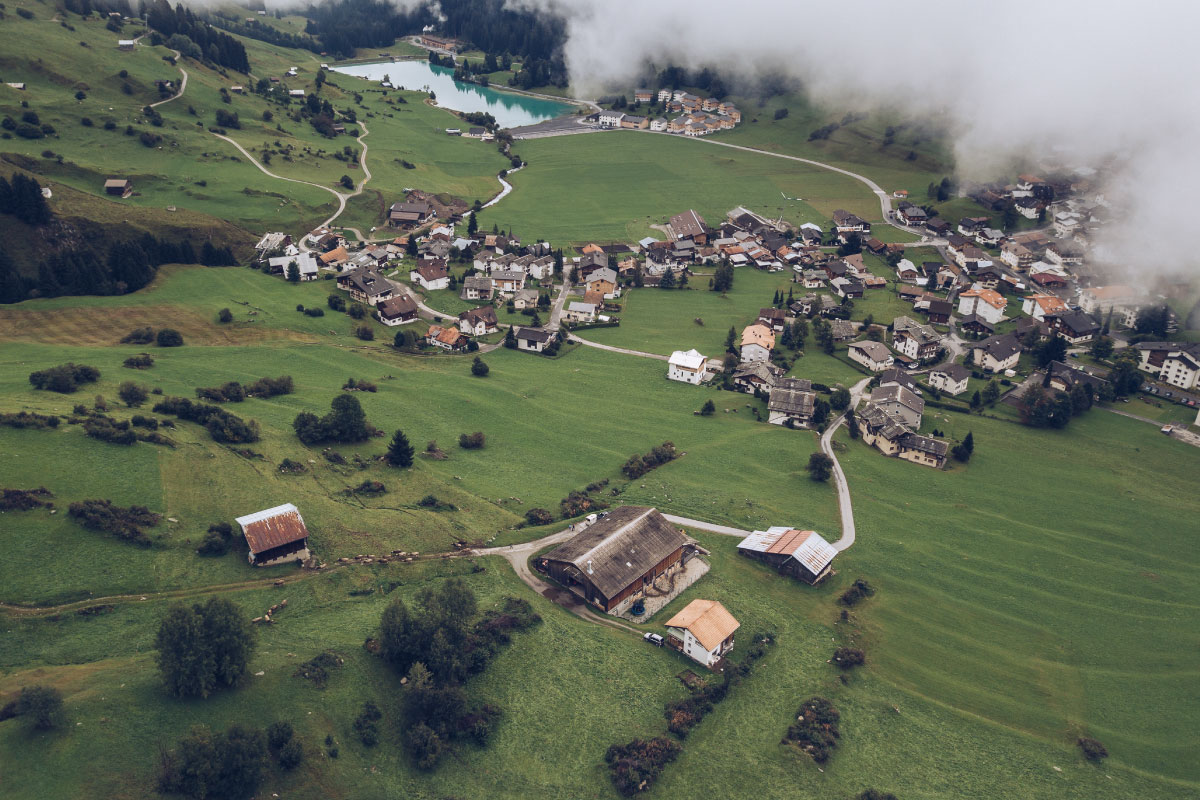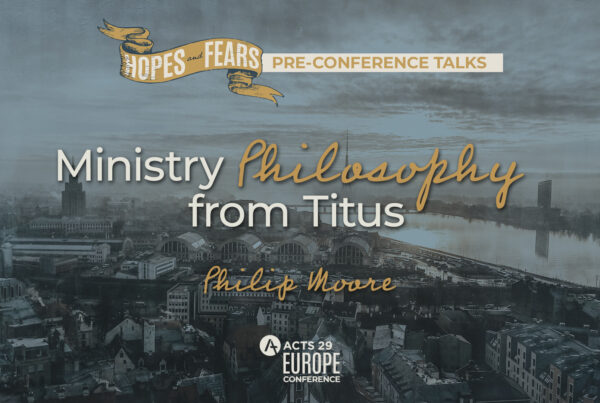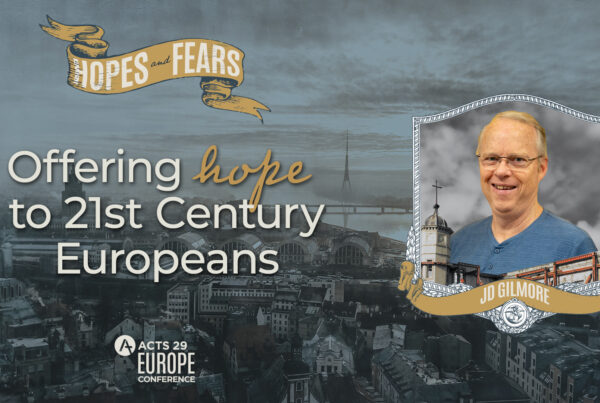Doddsgreen was smaller than a village. It was just a lane, with a few farms and a row of cottages built to house farm workers. The school had less than thirty children in total, with Mr Townsend as the head teacher. It was not the place to make your name, or even to notice if you drove through.
Steve often walked the mile to school for his lessons. With the rest of the children he heard Mr Townsend share the glorious, eternal gospel of a country preacher, from Nazareth of all places, who was the Son of God. God used the words of Mr Townsend to save Steve and make him a disciple of Jesus Christ. His new-found faith was nurtured in the Sunday School, where Mrs Townsend was Superintendent. You would not think that the Townsends had made a strategic decision for the Kingdom of God.
God’s strategy for church planting
Yet God’s strategies have always been different to ours. We are impressed by size, speed, power and strength. By fallen nature we are all what Martin Luther would have called ‘theologians of glory’. We long for that which seems glorious, rich, powerful and impressive. Our God, by contrast, chose the way of the cross. He chose the way of rejection, isolation, shame and failure to come for us, save us, forgive us and love us. He calls us to be ‘theologians of the cross’. He calls us to follow his strategy of emptying ourselves, becoming nothing and choosing to decrease that Christ may increase in all honour. It is this very Christ who chose the small places; born in neither Rome nor Jerusalem but Bethlehem. He was worshipped and welcomed by shepherds, the same sorts of men he chose to father nations, defy Pharaoh and slay Goliath.
The church in the city of Corinth was planted by Paul, the missionary and apostle. He had a fruitful eighteen months preaching and planting the Corinthian church. Though many were saved, there was no hint of status about Paul’s ministry. He later urged the church there to consider that, ‘not many of you were wise according to worldly standards, not many were powerful, not many were of noble birth. But God chose what is foolish in the world to shame the wise; God chose what is weak in the world to shame the strong; God chose what is low and despised in the world, even things that are not, to bring to nothing the things that are, so that no human being might boast in the presence of God.’ (1 Corinthians 1:26-29)
This is good news for those of us serving Christ in small towns and villages. I guess that Mr and Mrs Townsend were unconcerned about the importance of the school, church and village where they served Christ. They simply obeyed their call to be disciples who make disciples of every nation. There is no need to seek a significant or strategic place to plant a church when God’s strategy is to reach foolish, weak, low and despised nobodies. You can plant a church anywhere to reach nobodies, as long as you know you are nobody yourself.
There is no need to seek a significant or strategic place to plant a church when God’s strategy is to reach foolish, weak, low and despised nobodies.
Mr and Mrs Townsend’s planting and watering of the gospel seed saw God give growth. By the time he was in his early twenties, Steve was in a village in the heart of Shropshire, England. As the pastor of the village non-conformist chapel, he was working out how to replant a church in the countryside. Having been ‘not a very good student at not a particularly good Bible college’, Steve welcomed advice, teaching and books from the nearby Baptist minister, Alvin Shuttleworth. In another insignificant village, Steve was discipled in his first experience of church planting. It would not be his last.
Paul’s strategy for church planting
Many of us trace our roots back to the villages and small towns of the world. We were saved there, grew up there, we were discipled there, worked there. Rural lowlands and highlands have always been places the Lord has planted his people and his church. The Bible book of Acts tells the story of how the message of Jesus Christ went out from Jerusalem and Judea through Samaria and to the ends of the earth. It charts particularly the work of the missionaries Peter and Paul. Paul’s great journeys culminated in Rome, the city of cities. They included other important centres like Corinth and Philippi.
Rural lowlands and highlands have always been places the Lord has planted his people and his church.
Certainly, Paul wanted to reach as many people as he could with the news of Jesus Christ, but his approach echoed God’s strategy. As well as preaching to nobodies within a city, Paul was just as happy preaching to nobodies who lived in the middle of nowhere. We see this at the very start of his life as a missionary. Commissioned in the great city of Antioch, he set out for Cyprus. Luke records that they began in Salamis, on the east coast, and went ‘through the whole island as far as Paphos’ on the west. (Acts 13:6) The two port cities are important for their size and travel connections, but the whole island is visited. Villages needed Paul’s gospel just as much as cities.
We see this approach throughout the account in Acts. Often the major cities are named to orientate us as to where the missionary team were, but their work was clearly not confined to those centres. For example, we read that under persecution in Iconium, Paul and his companions ‘…fled to Lystra and Derbe, cities of Lycaonia, and to the surrounding country, and there they continued to preach the gospel’. (Acts 14:6-7) These cities were small and insignificant, their surrounding villages even less important.
Yes, the ministry of Paul included large cities — necessary because of their travel links but more because of the numbers who needed to hear of Christ. We need many more churches planted in the cities across our world, many of which are growing more enormous by the year. Paul’s ministry was not strategic, though. He went to cities because he wanted to preach the gospel to all. That is why he also went to villages. He was more opportunistic than strategic, trusting the Lord for the strategy. An example of this is Acts 17:10-15 where Paul preaches in the small town of Berea and finds a more noble acceptance of the gospel than in much larger and significant Thessalonica. When Paul goes on to Athens, his co-workers Silas and Timothy stay in Berea to see the church established. If Paul were in charge of the strategy, he would surely have wanted all his team in the crucially important city of Athens. Instead he trusts Christ with the strategy, sees that the Spirit is working in Berea, and deploys his resources accordingly.
Christ’s love for the lost
This is no surprise. Throughout scripture the Lord has loved people, wanting to bring a great multitude to worship his Son. The great King David, who captures Jerusalem and makes it the heart of God’s nation, comes from the tiny village of Bethlehem. The greater King Jesus who will rule over the eternal Jerusalem was born in the same village. Moses grew up in the corridors of power, but the Lord sent him to country work as a shepherd before he was ready to lead God’s people. Cities and villages are full of people who have selfishly chased sin as it led them away from their God. Cities and villages are full of people who need to hear the good news that their God came to die for them before he came to judge them. There is forgiveness, welcome, love and grace for all who accept Jesus Christ as Lord and Saviour – for the woman who works out her life in a village in Guatemala as well as for the girl in an inner-city school; for the boy who follows the plough as well as for the businessman in his skyscraper office.
If nearly half the world’s population live in rural areas, nearly half the world’s churches should be planted in rural areas.
In 2014, at the Acts 29 Pastors’ Retreat in Miami, there was much talk about a tipping point that had just been reached. The news was that the population of the world was then 51% urban. For the first time across the ages, more people lived in cities than in the countryside. Steve Timmis, the Chief Executive Officer of Acts 29, commented from the platform that this meant that 49% of people live in rural areas.
Steve is a well-known and widely respected church planter. He is responsible for a global church planting network. He is pastor of The Crowded House, a church in the city of Sheffield, England, and he is an author on church-planting and church life.
Steve was saved through a teacher in Burleydam, and nurtured by a Sunday School teacher in Doddsgreen. As a young rural church planter he was discipled by a pastor in a small market town. His point in Miami was simple: church planting is God’s mission strategy to reach the world. If nearly half the world’s population live in rural areas, nearly half the world’s churches should be planted in rural areas. They are not.
The Acts 29 Rural Collective
Acts 29 is a diverse, global family of church-planting churches. Our vision and desire is to see churches planted that go on to plant churches. In 2017 three areas of need were identified; three contexts that were under-resourced and under-represented in church planting: the urban poor, majority Muslim regions, and rural areas.
Church in Hard Places is an Acts 29 collaborative to see churches planted in places where it is hard to live.
This is now being followed by the Rural Collective. Defining “rural”, especially in a global context, is not simple. Most organisations seem to simply opt for ‘not urban’, but this does not capture the scope and feel of rural church planting. To better capture this, we have come up with the following markers for rural life:
Geographic:
- Low population/population density.
- Isolation (not reasonably adjacent to urban areas).
- Limited transportation.
Demographic:
- Low median education or literacy rate.
- Largely ethnically homogenous.
- Transient nature of the area (i.e. out-migration but limited in-migration).
Socioeconomic:
- The dominance of one or few predominant industry(ies).
- Low upward mobility.
- Subsistence living.
- Low access to technology and amenities.
Few areas will feature all of these markers, but the more that there are, the more rural an area is. The other way of defining rural is that we know instinctively what it is. The varied nature of rural life globally, though, means that what is needed to plant churches in rural Australia differs from rural Malawi or Guatemala.
The isolated, forgotten and small places
Through these markers we want to see churches planted in the isolated, forgotten and small places. We want to see Christ worshipped by all – small and great, in village and town as well as city and suburb.
We want to see churches planted in the isolated, forgotten and small places. We want to see Christ worshipped by all.
That is why this Rural Collective is an exciting new venture for Acts 29. The Collective will work with the existing networks of Acts 29, to serve and resource them with what they need to see more rural churches planted. Because at its heart, Acts 29 is not about planting churches directly, we are about churches that plant churches.
So this is a beginning. It’s a beginning for finding out what the networks need in terms of Assessment, Coaching, Training and Support to see rural churches planted. But it is not the beginning. The beginning was in a Garden of Eden and a Garden of Gethsemane. The end will be in Jerusalem — a New Jerusalem, centred on a river and a tree so us country-dwellers will feel at home just as much as the city-folks. Until then, may the glorious gospel of Christ crucified go to every city, town, village and lane to the praise of God alone.
Learn more about the Rural Collective here:











